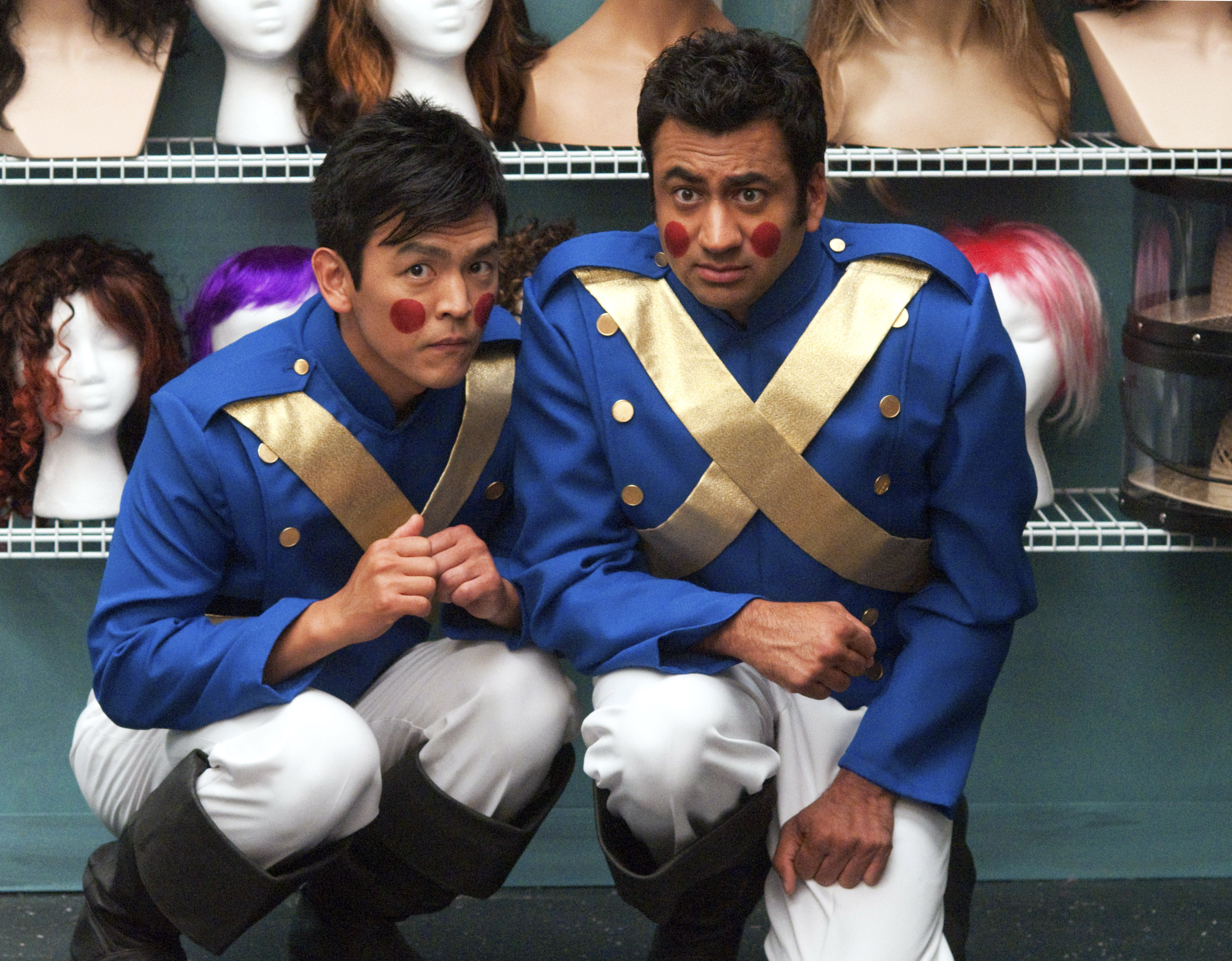UCLA alumnus Kal Penn returns to the film franchise of “Harold and Kumar” with “A Very Harold and Kumar 3D Christmas,” opening in theaters today. Penn spoke with the Daily Bruin’s Teresa Jue on UCLA’s North and South Campus tension, what his parents think about Kumar and pursuing his various careers, from working in the White House to being a university professor.
Daily Bruin: How does it feel reuniting with John Cho and Neil Patrick Harris and everyone else in the cast for another “Harold and Kumar” movie?
Kal Penn: It’s very cool. John and I and Neil have grown to be great friends in real life over the franchise. It’s a rare treat to have the chance to do something like that again.
DB: You’re a triple threat, having been an actor, a professor at the University of Pennsylvania and an associate director in the Office of Public Engagement at the White House. Do you derive any sort of weird pleasure from being so accomplished?
KP: No, I think I just have no attention span. What I love about those three things is that they’re all completely different. I love being creative as an actor and a filmmaker. Part of the reason I liked teaching was because I always loved professors that put theory in the syllabus and other professors that were incredibly well-versed who had been on film sets before and can tell you what that was like. I kind of thought it would be cool to craft a class with both. And then the public service thing obviously had nothing to do with either, and I felt privileged to do that.
DB: Was President Obama a fan of the “Harold and Kumar” films?
KP: I never figured out when the appropriate time to ask the president whether he knew I played a stoner who escaped from Guantanamo Bay. I don’t know how to ask that. I kept that world very professional.
DB: Did you aspire to be an actor and work in public service while you were at UCLA?
KP: Yes, both actually. One of the reasons I went to UCLA was that they had a great film and theater school, a great communications program, strong academics and proximity to the entertainment industry, so I could work while going to school.
DB: How did you feel being a total North Campus major when you were at UCLA, studying sociology and being in the School of Theater, Film and Television?
KP: I was totally North Campus, but I remember weirding out and taking (Life Science) 2, “Cells, Tissues and Organs” as an elective because I really thought it was fascinating. I remember I missed something the professor said one day and I asked the kid next to me and he goes, “˜Don’t look at my paper.’ I’m like, “˜Dude, we’re not competing, I’m a film major, I just wanted to know what the professor said.’ I definitely felt that North-South Campus tension, so I’d say I’m North Campus all the way.
DB: Were you anything like Kumar during your years at UCLA?
KP: No, and that’s why I love playing Kumar since he’s so different from me. I liked that UCLA offered a balance. Like if you just want to be a studious person, you could be that student, or if you wanted to party all the time, you could be that too.
DB: Were your parents supportive of your career path seeing your success now?
KP: I think for any parent, especially any immigrant parent, it was tough to explain how something that is not a stable career could make you happy. It took a while, like years, for them to turn around. Now they are very supportive to the extent that my mom always tries to talk to young folks whose parents are telling them not to go into a particular career and telling them they should do it.
DB: How do your parents feel about you doing all these illicit activities on screen as Kumar?
KP: I think my parents are very good-natured about it. … There was nudity in the first movie and I apologized to my mom for it and she’s like, “˜You don’t think I’ve seen that before? I’ve changed you as a baby.’
DB: In the film, you portray a stoner med school dropout, so what is your advice to graduating students of UCLA who want to avoid that fate?
KP: I think one thing I learned was that people would always tell me that I’m crazy for wanting to do more than one thing. And I’m glad I didn’t listen to the people who told me I was crazy for wanting to pursue film and then public service and then teaching. There’s no rule that says that you can’t do it all.
